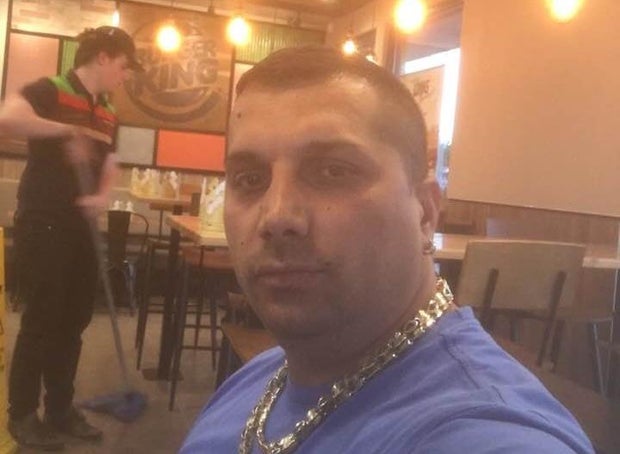More than a dozen people trafficked from the Czech Republic into the U.K. were forced to work for several years in a McDonald’s restaurant and a food factory supplying some of Britain’s major supermarket chains, a BBC investigation has found, despite red flags that could have tipped off employers to the abuse.
A gang run by Czech brothers Ernest and Zdenek Drevenak forced 16 victims — many of whom had experienced homelessness or addiction — to work, seizing their income and controlling them with threats and violence, according to police.
The gang syphoned off most of the victims’ wages, leaving them with a few pounds a day to live off in cramped accommodation, including an unheated trailer and a leaky shed, according to CBS News’ partner network BBC.
Police said the gang used the stolen wages to buy luxury cars, jewellery and a property. Six members of the Czech trafficking ring have been convicted in two trials that were delayed by the COVID pandemic.
For four years, between 2015 and 2019, the victims worked at a branch of the American fast-food chain in Cambridgeshire and at pitta bread factories in Hertfordshire and north London that supplied major U.K. supermarket chains.
In response to the BBC report, McDonald’s U.K. said in a statement that it had improved systems for spotting “potential risks.”
The company said it cares “deeply” about all of its employees and promised it would “play our part alongside government, NGOs and wider society to help combat the evils of modern slavery.”
The British Retail Consortium said its members would learn from what had happened.
Missed signs
Several blatant signs of modern slavery were missed for years, according to the BBC, including four of the men having their wages paid into the same bank account, and nine of the victims listing the same same home address in north London.
At least some of the victims couldn’t speak English, with a member of the gang purportedly sitting in on their job interviews as an interpreter. They also worked brutally long hours — 70-100 hour weeks — with one person working at least one non-stop 30-hour shift.
“It really concerns me that so many red flags were missed, and that maybe the companies didn’t do enough to protect vulnerable workers,” said the U.K.’s former independent anti-slavery commissioner, Dame Sara Thornton, about the BBC’s findings.
Detective Sergeant Chris Acourt, who led the investigation by the Cambridgeshire Police, told the BBC that “massive opportunities” were missed.
“Ultimately, we could have been in a situation to end that exploitation much earlier had we been made aware,” he said.
The victims’ ordeal ended in late 2019, after some of the victims contacted Czech police, who informed their British counterparts. Several times, some of the victims escaped their captors and fled back to the Czech Republic, only to be hunted down and trafficked back to Britain.
Police said the trafficked individuals’ passports were confiscated by the gang members, and that the Drevenak brothers controlled them through fear and violence.
“We were afraid,” Pavel, one of the victims, told the BBC. “If we were to escape and go home, [Ernest Drevenak] has a lot of friends in our town, half the town were his mates.”
The gang “treated their victims like livestock,” Detective Inspector Melanie Lillywhite of London’s Metropolitan police told the BBC, adding that they were allowed only enough food “to keep them going.” Police said the gang raked in the equivalent of almost $290,000 from the four victims who worked at the McDonald’s alone over the course of their exploitation.
Lillywhite said the gang monitored the victims with security cameras and restricted them from using phones or the internet. Given all the restrictions and their lack of English language skills, she said “they really were cut off from the outside world.”
Pavel told the BBC he’d been living homeless in the Czech Republic when the gang approached him with the promise of a well-paid job in the U.K.
“You can’t undo the damage to my mental health,” he told the BBC of his ordeal. “It will always live with me.”
Though the brothers have been convicted of crimes in relation to the trafficked Czech nationals, Pavel told teh BBC that McDonald’s bears some blame for what he went through.
“I do feel partially exploited by McDonald’s, because they didn’t act,” he said. “I thought if I was working for McDonald’s, that they would be a little bit more cautious, that they will notice it.”


